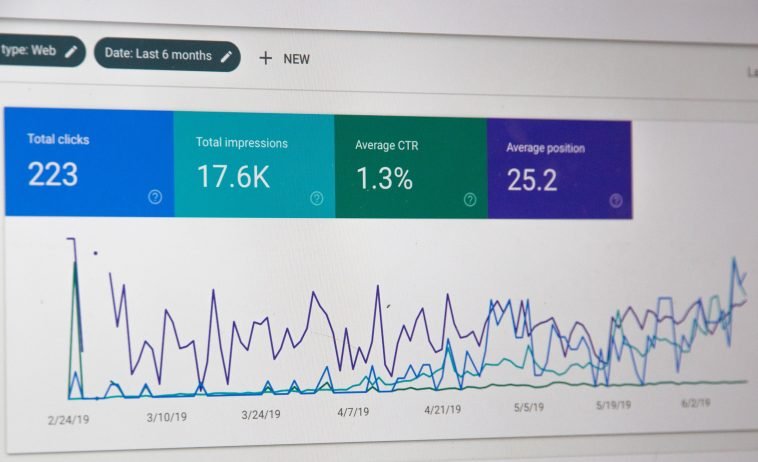Introduction.
Email marketing has evolved far beyond simple newsletters or promotional emails. It’s now a powerful way to communicate directly with customers and keep a brand alive in their minds.
When done well, email marketing can bring measurable results, and, most importantly, build brand awareness. If someone is familiar with your brand, they’re more likely to consider it when they need the products or services you offer.
This is where email marketing shines—it’s about creating those connections that keep you in your audience’s mental list of go-to brands.
In this post, I’ll walk you through how email marketing helps boost brand awareness and discuss some of the real advantages and potential drawbacks. By the end, we’ll cover FAQs and leave you with a thought-provoking question to consider.
Why Does Brand Awareness Matter?
Brand awareness is a big deal. It’s the first step in turning potential customers into actual customers. When people know your brand and can recall it easily, you’re halfway to making a sale.
Take a moment to think about how many brands pop up instantly when you think about categories like sneakers, coffee, or tech.
Chances are, a handful of well-established names come to mind. Those brands have worked hard to stay memorable, largely through brand awareness.
However, not all brands have giant budgets for ads or massive followings on social media.
That’s where email marketing steps in as an affordable, effective way to reach people directly and regularly. Studies show that email marketing has an ROI (Return on Investment) of around $36 for every $1 spent, making it one of the most cost-effective channels for growing brand awareness.
How Does Email Marketing Increase Brand Awareness?
Let’s break down some specific ways email marketing can help your brand stand out.
1. Consistency in Communication
Email allows for regular, consistent updates, which is ideal for building familiarity. When people see your brand pop up in their inboxes consistently, it reinforces their memory of you. Even if they don’t open every email, just seeing your name creates a sense of familiarity.
2. Direct Line to Your Audience
Unlike social media, where algorithms decide how many people actually see your posts, emails go directly to your subscriber’s inbox. If you’ve put in the work to build a quality email list, you’re speaking to people who are genuinely interested in what you offer.
3. Personalized Content
Personalization is incredibly powerful in building brand awareness. Emails that address people by their names and offer content tailored to their preferences resonate more than generic messaging.
Personalized emails are known to drive 6x higher transaction rates than non-personalized ones, helping your brand leave a more lasting impression.
4. Storytelling Opportunities
Emails give you the chance to tell your brand’s story, mission, or values in more depth than other mediums.
A well-crafted welcome series, for example, can introduce new subscribers to your brand story and values, helping them connect with your brand on a deeper level.
5. Encouraging Engagement
An effective email marketing campaign goes beyond sending information; it invites subscribers to engage.
You can ask for feedback, encourage them to share your content, or give them special offers that feel exclusive. This engagement can be a huge factor in strengthening your brand’s visibility and value.
6. Building Credibility and Trust
The more you communicate valuable, relevant information, the more trust you build. Subscribers start to see your emails as a reliable source of insight, and over time, they’re more likely to trust your brand and even recommend it to others.
Pros and Cons of Email Marketing for Brand Awareness
To give a well-rounded perspective, let’s look at the potential benefits and drawbacks of using email marketing for brand awareness.
Pros
- Cost-Effective: With a high ROI, email marketing is one of the most affordable ways to maintain brand awareness.
- High Engagement Potential: Emails with personalized content see higher engagement, which reinforces brand recall.
- Controlled Reach: Since emails go straight to your subscribers, you don’t have to worry about competing with an algorithm.
- Trackable Results: Analytics let you track open rates, click rates, and conversion rates to see exactly how well your emails perform.
Cons
- Risk of Overwhelming Subscribers: Too many emails can lead to unsubscribes, so it’s important to strike a balance.
- Spam Filters: Even well-crafted emails can end up in spam, especially if they contain certain trigger words or too many images.
- Maintenance: Keeping your email list updated and compliant with privacy laws can require consistent effort.
- Content Fatigue: If you don’t provide real value in your emails, subscribers may start to ignore them.
FAQs
Q: How often should I send marketing emails?
A: It depends on your audience and content. For most brands, once a week or bi-weekly works well, but always keep an eye on open rates and unsubscribe rates. These can hint if you’re emailing too often.
Q: What should I include in my brand awareness emails?
A: Content that builds value for your subscribers, like industry insights, customer testimonials, product updates, or behind-the-scenes looks at your brand. Focus on staying relevant and helpful, rather than overly sales-driven.
Q: How can I measure brand awareness through email?
A: Metrics like open rate, click-through rate, and social sharing can offer insight. Also, if you notice more direct traffic or Google searches for your brand after a campaign, it could be a sign of increased brand awareness.
Q: Do I need fancy graphics for my emails?
A: Not necessarily. Well-written, plain-text emails can often feel more personal and get higher engagement than overly designed ones. It’s about the quality of the message, not the look.
Q: What’s the best way to grow my email list?
A: A combination of tactics works best. You can use sign-up forms on your website, offer exclusive content or discounts in exchange for email subscriptions, and make it easy for social media followers to subscribe.
In Conclusion
Email marketing is an effective, budget-friendly way to grow brand awareness, bringing your business closer to potential customers one inbox at a time.
When done right, email marketing can create a consistent presence that helps people remember your brand, trust it, and eventually become loyal customers.
Just remember, consistency and quality are key; spamming people with irrelevant content will only hurt your brand’s image.
So, is your brand using email marketing to its full potential? What strategies have you found work best for increasing brand awareness through email?





GIPHY App Key not set. Please check settings